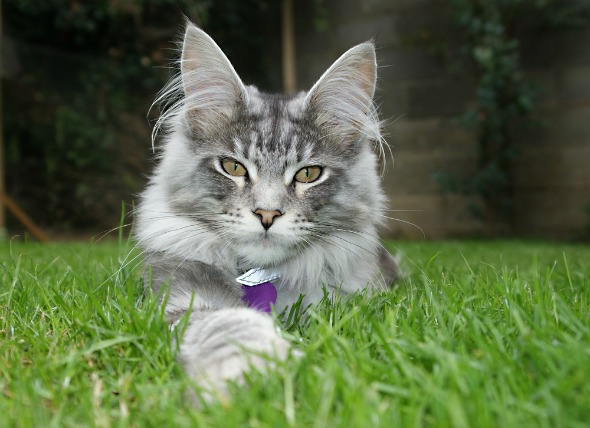It can be frightening when your cat becomes aggressive. Your cat's behavior can turn on a dime. Feline aggression is often caused by five common things. We will discuss these five things as well as examine some ways that you can deal with cat behavior problems such as aggression.
Cats' most frequent kind of aggression is playful aggression. This can be seen when your cats plays roughly with her teeth and claws. This should not be interpreted as an attack, however; your cat has merely mistaken you for a particularly interesting toy. Thus, making sure your cat has actual toys to play with will make it less likely that your cat will decide to sharpen its claws on you.
Another one of the cat behavior problems can be caused by your cat having too much excitement. He can become over-stimulated and, as a result, lash out at you. If your cat appears to be over-stimulated, just leaving the room will often help him calm down. Or, if your cat is excessively aggressive, it might be better to isolate him until he calms down. Once he is calm again, normal behavior should return.
Territorial aggression is also a common problem in cats, and often is directed toward a new person or animal who enters the house for the first time. It occurs because kitty has come to believe that your home, and everything in it, belongs to her. To deal with this problem, introduce new animals and people slowly and carefully, and feed plenty of treats during the getting to know you phase.
Redirected aggression is one of the more unusual cat behavior problems. It occurs when a cat is aggressive toward other animals it cannot reach and then redirects this aggression toward you. This can happen, when your cats spots other animals through the window, a passing cat that appears as a threat for instance. You can avoid the problem by shading your windows so the cat cannot see out.
Finally, we should mention that some cats can become aggressive due to health problems. Any condition that causes pain, such as a bladder infection, abscess, or stomach problem, can lead to aggression because kitty cannot tell you what is wrong.

 Ringworm in Cats
Dermatophytosis in Cats
Dermatophytosis is t
Ringworm in Cats
Dermatophytosis in Cats
Dermatophytosis is t
 Heart Disease (Hypertrophic Cardiomyopathy) in Cats
Cardiomyopathy, Hypertrophic in Cats
The heart ha
Heart Disease (Hypertrophic Cardiomyopathy) in Cats
Cardiomyopathy, Hypertrophic in Cats
The heart ha
 Unintentional Eye Movement in Cats
Nystagmus in Cats
Nystagmus causes the involuntar
Unintentional Eye Movement in Cats
Nystagmus in Cats
Nystagmus causes the involuntar
 Unequal Pupil Size in Cats
Anisocoria in Cats
The pupil is the circular open
Unequal Pupil Size in Cats
Anisocoria in Cats
The pupil is the circular open
 Fever in Cats
Pyrexia in Cats
The normal body temperature for c
Fever in Cats
Pyrexia in Cats
The normal body temperature for c